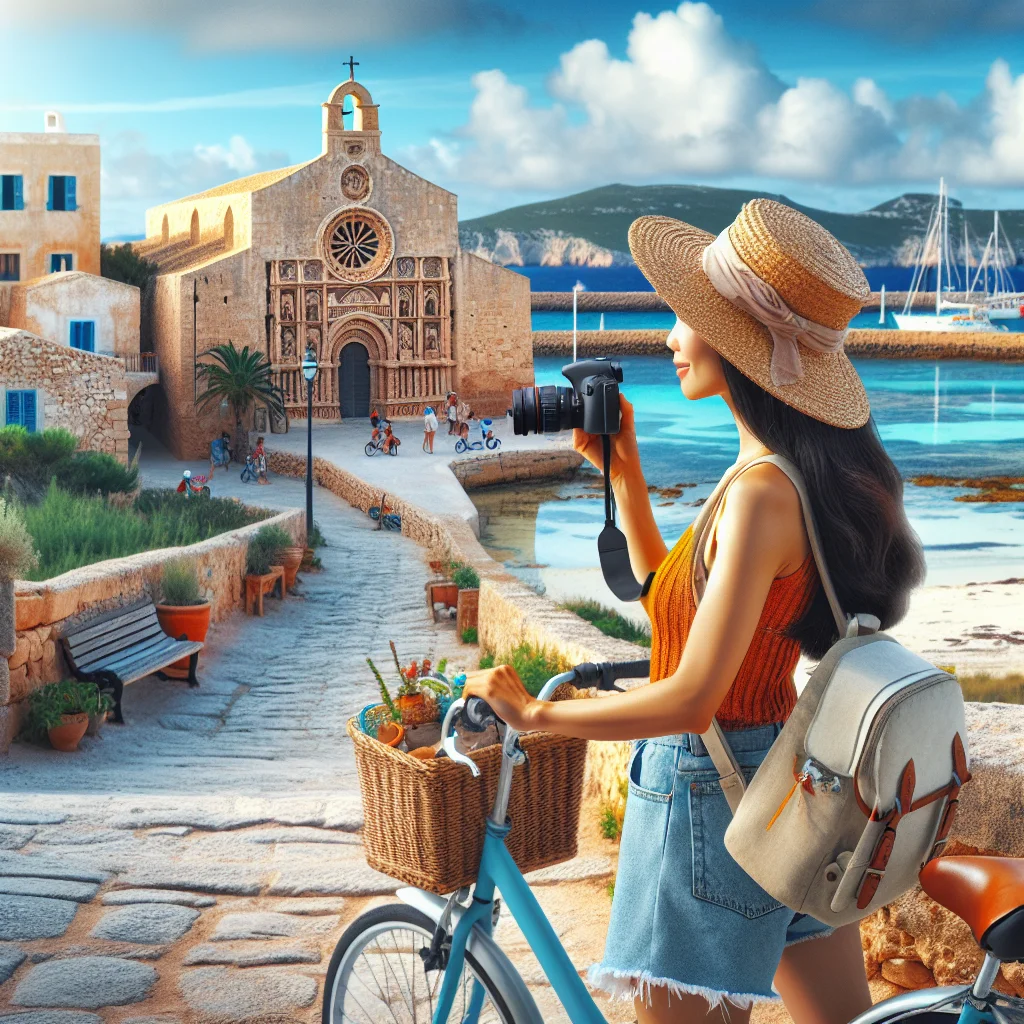Unveiling Formentera's Rich Cultural Heritage Through Sustainable Travel
April 18, 2025

Formentera, an idyllic island in the Mediterranean, is often celebrated for its stunning beaches and clear waters. Yet, what lies beneath the surface is a vibrant cultural heritage steeped in history and traditions. As travelers increasingly seek sustainable experiences, Formentera offers numerous opportunities to explore its cultural richness while treading lightly on the environment. This guide will delve into the island’s culture and provide eco-friendly ways to engage deeply with its local traditions, festivals, and culinary delights.
Embracing Local Traditions
One of the best ways to experience Formentera's culture is through direct engagement with its community. The island's traditions are rooted in the agricultural practices and customs of its residents, especially the local fishermen and artisans. Participating in workshops led by locals offers a unique glimpse into the skills and techniques that have been passed down through generations.
Artisan Workshops
Consider joining a pottery workshop in Sant Ferran, where you can learn the art of crafting utilitarian and decorative ceramics. These sessions often utilize traditional methods, emphasizing sustainability by using natural raw materials sourced from the island. By supporting local artisans, travelers not only learn valuable skills but also contribute to the preservation of traditional practices that are increasingly at risk of fading away.
Community Festivals
Festivals in Formentera are vibrant celebrations that depict the island's culture and community spirit. One such event is the Festival of Sant Jaume, held every July. The festival includes traditional music, dance, and local food stalls featuring sustainable cuisine made from locally sourced ingredients. Attending such events allows visitors to immerse themselves in local customs while supporting the community.
Gastronomy as Cultural Exchange
Formentera's culinary scene is a delightful reflection of its geography and cultural history. The island’s gastronomy features a mix of Mediterranean influences, showcasing fresh seafood, locally grown vegetables, and traditional recipes passed down through generations. Engaging with local cuisine provides travelers with insights into the island’s cultural identity.
Farm-to-Table Experiences
Eco-conscious travelers can opt for farm-to-table dining experiences, which emphasize sustainability and local sourcing. Restaurants like Can Forn serve dishes that highlight seasonal produce and seafood caught by local fishermen. In addition to your meal, many places offer cooking classes where you can learn to make traditional dishes while understanding the significance of the ingredients used. For example, making pa amb oli, a traditional Balearic dish, showcases both local culinary techniques and the island's agricultural traditions.
Sustainable Food Markets
Visiting local markets like the Sant Ferran market is an enriching experience, not just for the products available but also for the interactions with local vendors. These markets promote sustainable practices by connecting consumers directly with producers. Here, you can find organic produce, handmade crafts, and artisanal foods, fostering a sense of community and supporting the local economy.
Exploring Cultural Heritage Sites
Exploring Formentera’s historical sites is crucial for understanding its cultural heritage. The island is home to numerous archaeological sites that tell the story of its rich history, including ancient Phoenician remnants and traditional windmills.
The La Mola Lighthouse
One emblematic site is the La Mola Lighthouse, built in the 19th century and offering breathtaking views of the coastline. A visit to the lighthouse provides not only picturesque scenery but also insights into the island's maritime history and the significance of navigation in the region.
Cap de Barbaria
Just a short trek from the lighthouse, Cap de Barbaria is famous for its rugged cliffs and historical significance. Here, you can explore remains of ancient agricultural terraces and enjoy panoramic views of the Mediterranean. Engaging in guided tours can enhance your understanding of these sites, as local guides share the stories and significance of the locations you visit.
Nature and Conservation as Cultural Preservation
Sustainable travel on Formentera goes hand-in-hand with environmental conservation, which is integral to preserving its cultural heritage. The island is home to several protected natural parks and areas that reflect its ecological importance.
Ses Salines Natural Park
Ses Salines is not only a haven for wildlife but also a place where visitors can learn about traditional salt harvesting practices that have shaped the island’s economy and culture. Engaging in eco-tours that respect nature provides an opportunity to connect with the land, understand its historical significance, and appreciate the delicate balance between tourism and conservation.
Eco-Friendly Accommodations
Staying in eco-friendly accommodations, such as small family-run hotels or glamping sites, can significantly reduce your carbon footprint while providing a unique experience that reflects local culture. These establishments often prioritize sustainability initiatives and may even offer guided cultural experiences that align with your interests.
Conclusion
Formentera is an island that beautifully intertwines cultural heritage with sustainable travel practices. By embracing local traditions, participating in community festivals, savoring traditional cuisine, and exploring historical sites, travelers can engage with the rich culture of Formentera while minimizing their environmental impact. The island invites you to explore and celebrate its unique heritage, ensuring that its traditions continue to thrive for generations to come.
Back